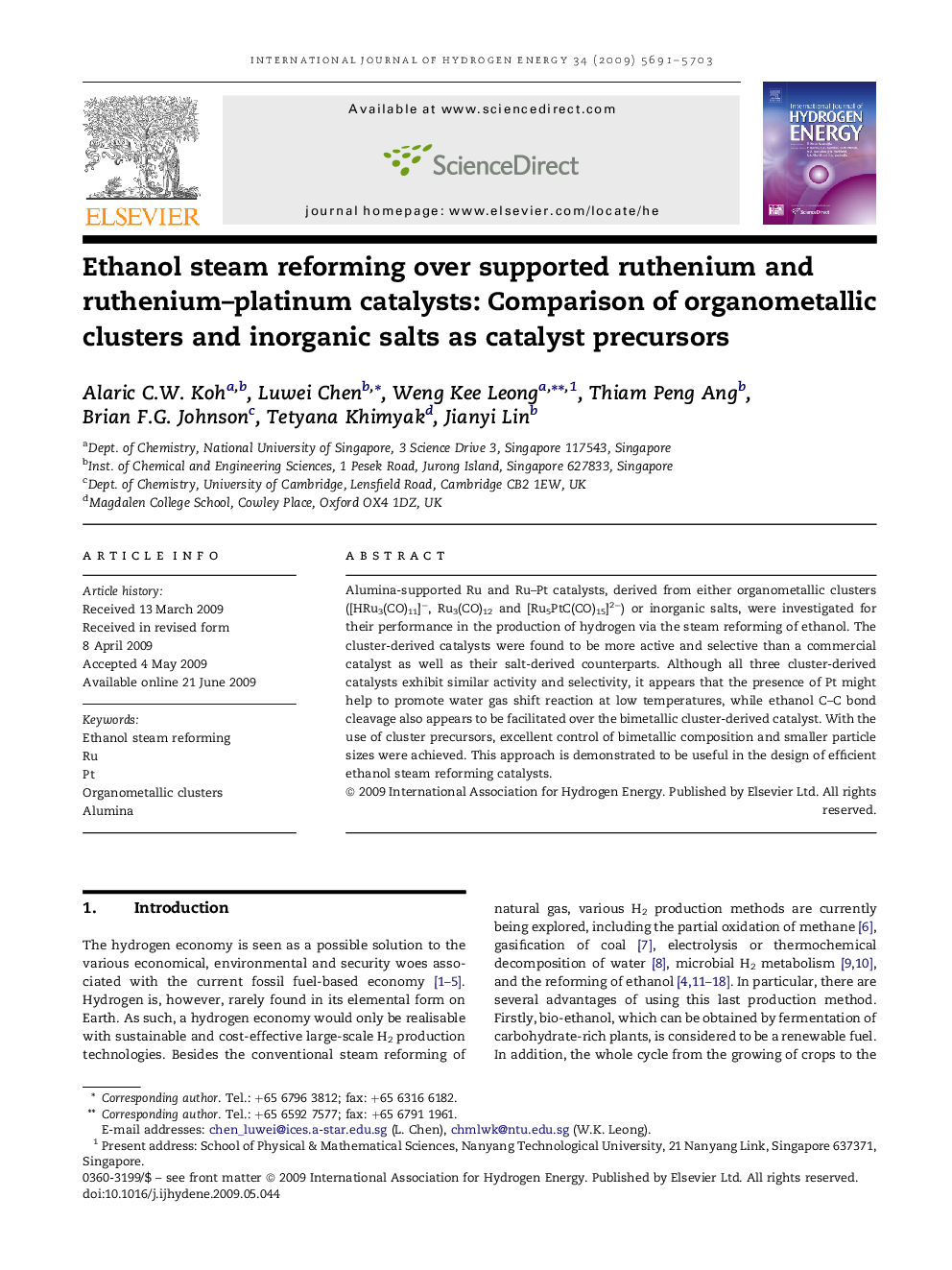| Article ID | Journal | Published Year | Pages | File Type |
|---|---|---|---|---|
| 1273696 | International Journal of Hydrogen Energy | 2009 | 13 Pages |
Alumina-supported Ru and Ru–Pt catalysts, derived from either organometallic clusters ([HRu3(CO)11]−, Ru3(CO)12 and [Ru5PtC(CO)15]2−) or inorganic salts, were investigated for their performance in the production of hydrogen via the steam reforming of ethanol. The cluster-derived catalysts were found to be more active and selective than a commercial catalyst as well as their salt-derived counterparts. Although all three cluster-derived catalysts exhibit similar activity and selectivity, it appears that the presence of Pt might help to promote water gas shift reaction at low temperatures, while ethanol C–C bond cleavage also appears to be facilitated over the bimetallic cluster-derived catalyst. With the use of cluster precursors, excellent control of bimetallic composition and smaller particle sizes were achieved. This approach is demonstrated to be useful in the design of efficient ethanol steam reforming catalysts.
